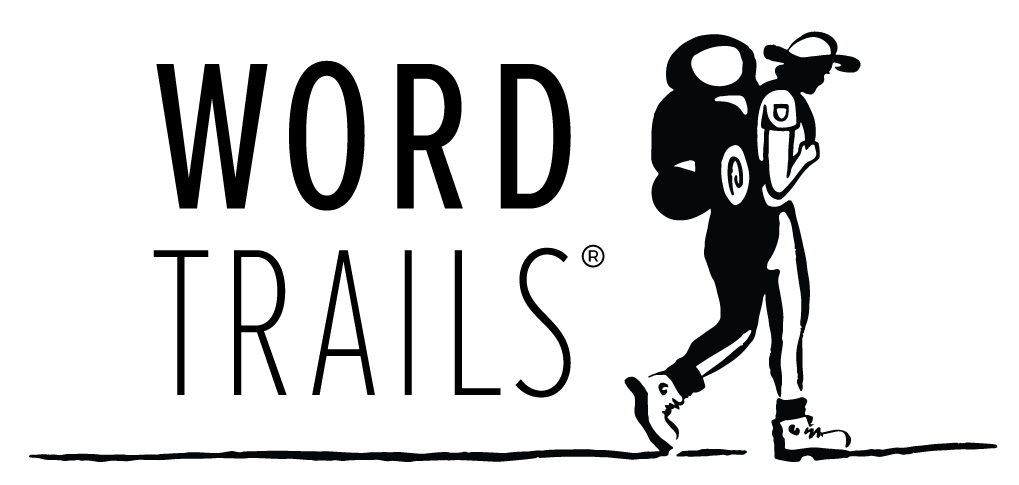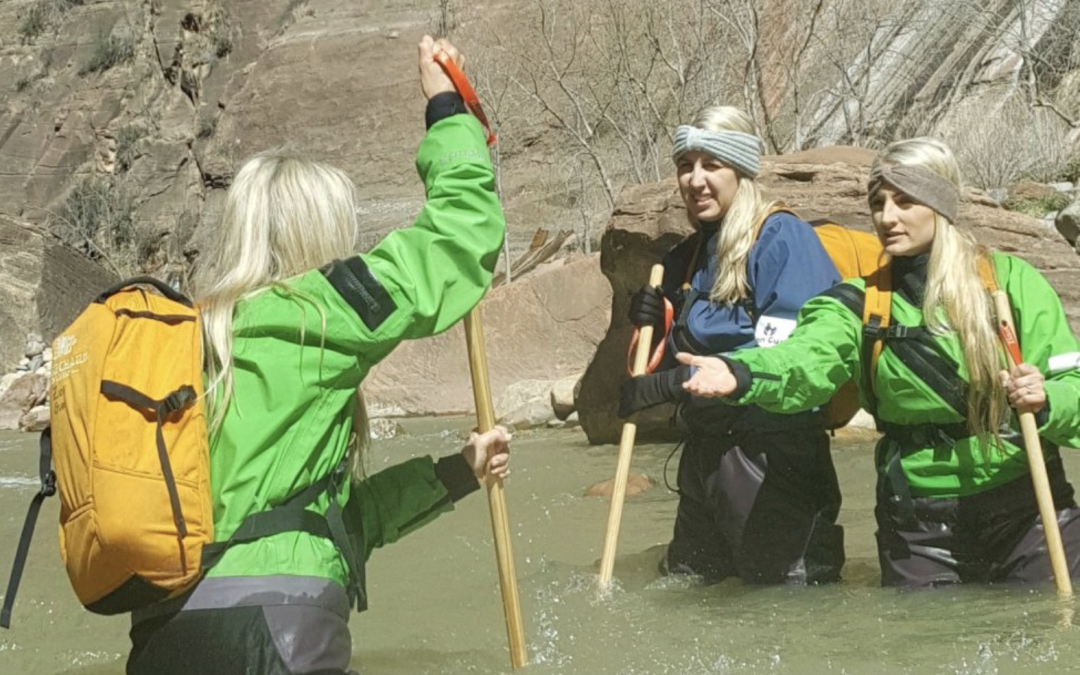What happens when everyone gets to…and has to… interact as equals?
How WordTrails Transforms Entire Systems
Picture this: Your teenager just graduated high school. Everyone knows the family dynamics need to shift. You want to stop being “the parent who manages everything.” They want to stop being “the child who needs managing.” Your other kids want their relationships to evolve too. Everyone can feel that the old patterns don’t fit anymore.
But how do you get there?
If you, as the parent, try to build a bridge to this new way of being together, you’re still parenting. You’re still the one taking responsibility for everyone’s emotional safety, still the one trying to figure it out for everyone else. And as long as you’re playing that role, everyone else stays locked in their old roles too.
This is the impossible bind that families, teams, and communities find themselves in all the time. Everyone wants to change, but someone has to go first. And whoever goes first ends up carrying the burden of transformation for the whole system.
I experienced this as a guide. It’s really where WordTrails came from…my profound need to find a way to be in the world where I could free myself from not being able to let go of being a guide.
Crossing the Trust Gap: Taking a leap of faith
Here’s what I’ve learned from decades of guiding people through wilderness: some gaps can’t be crossed step by step. Sometimes there’s no way to build trust incrementally when there’s no structure to build on, in this uncharted territory.
In the backcountry, when you come to a river with no bridge, someone has to take the risk. Someone jumps in, swims across with a line, and creates that first connection so everyone else can cross safely. Usually, that someone is the guide.
But what happens when you have entered territory that is truly new to everyone, no one can know how it will be, what it will take? This creative project ahead of us, whatever it is – a business project, kids leaving home, a family resetting through divorce or illness or a big loss, a big windfall – any shift that lifts a group out of what has been, and lands them in,
Now what?
What happens when an entire family or team needs to transform, but no one person can or should carry the responsibility for everyone else’s change?
This is where WordTrails becomes something revolutionary.
The Neutral Zone where set roles don’t exist
WordTrails doesn’t ask anyone to be the bridge-builder. Instead, it creates what I call a “neutral zone” – a space where everyone can simultaneously step back from who they were and discover who they are now, together.
When a family sits down to play WordTrails, something remarkable happens. The game itself holds the space that the parent used to hold. The rules create the safety that someone used to have to provide. The structure carries the responsibility that individuals used to shoulder.
For the first time, everyone gets to take off their old roles simultaneously.
The parent doesn’t have to figure out how to stop parenting while still keeping everyone emotionally safe. The young adult doesn’t have to figure out how to claim their autonomy while still being respectful. The siblings don’t have to navigate changing hierarchies while maintaining family harmony.
They all just step into this space where those old roles simply don’t exist. Where they get to experience relating as equals, exploring, wondering, learning, building the trail together, step by step.
What happens when no one gets to, and no one has to, be in charge?
In WordTrails, there’s no hierarchy of who knows better. No one person is responsible for managing the conversation or keeping everyone comfortable. The game does that job.
Instead, everyone gets to contribute equally to building trails of understanding. They get to practice being curious instead of defensive. They get to experience what it feels like when questions are invitations rather than accusations.
And because this is happening for everyone at the same time, there’s no awkward transition period where some people are changing and others aren’t, creating tension and confusion. The entire system shifts as it goes along. Understandings evolve. Mutualities are highlighted.
Beyond individual change
This is what makes WordTrails different from most approaches to improving relationships or communication. Most methods put the burden on someone being the authority. Giving advice. “You need to be more vulnerable.” “You need to listen better.” “You need to change your communication style.”
But advice doesn’t change a system. Systems change when the structure changes. And the structure of authority in a system is a very deep change.
The change of authority can only happen when everyone can step into a new way of being – not knowing what will be true, what will be built – somehow stepping up together, to see what happens when something very different is set up.
A gradual shift of authority can certainly happen.
But sometimes, it’s showtime, now. That graduating teenager doesn’t need their parents to slowly learn to see them differently. The whole family needs to experience relating to each other differently – right now, in real time.
The work team doesn’t need the manager to gradually become less hierarchical while everyone else waits. Everyone needs to experience collaborating as equals.
The community doesn’t need some people to become more trusting while others remain defensive. Everyone needs to practice building something together in an environment where trust is possible.
The Catapult Effect
I think of WordTrails as a catapult that launches entire systems over the gap they couldn’t bridge incrementally. Instead of the slow, risky work of building trust step by step – which often fails because someone has to be vulnerable first – WordTrails creates quick access to the experience everyone is trying to reach.
People don’t just think their way to understanding what healthy connection feels like. They feel it. Their bodies learn the difference between real safety and performed safety. Their nervous systems experience what it’s like to be part of a team that trusts each other, and acts accordingly.
And once people have that felt experience, everything changes. The whole system now has a reference point: “This is what we’re looking for. This is how we want to be together.”
After having played, the full-system orientation shifts from a defensive
“How do I protect myself in this dysfunctional dynamic?” or a fearful/skeptical
“How do I take such a huge leap of faith, when I really don’t have the experience of being met?”
to all in.
“How do I get back to what I just experienced? That was AWESOME! We were so real together! I want more of that.”
There’s something profound about this shift from a feeling of moving forward into risky unknown territory to a feeling of returning home to something recognized as safe and good.
WordTrails gives people the experience of home – not the home they came from, but the home they’re building toward.
And now instead of taking scary steps into the void, they’re taking purposeful steps back toward something they know they want more of. A true place they have been together.
When Systems Want to Transform
This is what I see happening everywhere I look. Families where the kids are growing up and everyone wants to relate differently. Teams that want to move from hierarchical to collaborative but don’t know how to navigate the transition. Communities trying to heal old divisions where incremental trust-building has failed for years.
WordTrails offers something different: a way for entire systems of people to experience evolving transformation together. Not any one person carrying the risk and burden of designing the change. Not stepping into the fire and hoping others will follow.
One single step at a time in conversation, everyone gets to step into who they really are together.
I have been called an optimist…whether or not that is the case, I absolutely believe in us as people. I believe at heart we all want to get to some variation of being good together. And that means each of us being able to navigate things to our own satisfaction, based on our own understandings, choices and actions. I believe we want to show up authentically, we want to love ourselves and each other enough to stay curious instead of defensive, and we want to act from that place of connection rather than from fear and protection.
I trust these things are true because I have seen them in action.
All my life I have watched people in action, demonstrating the deep human desire to be good together. On the trail, and at the table. It is who we are: complex beings who want to be good together.


This article kicks ass! 🙂